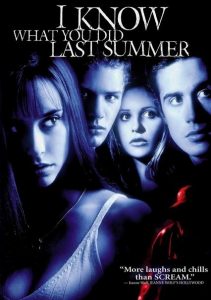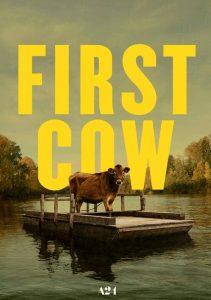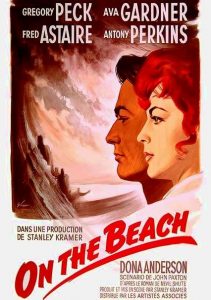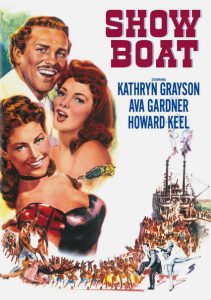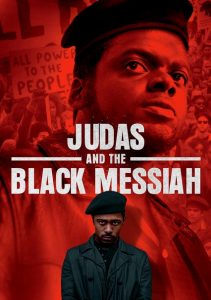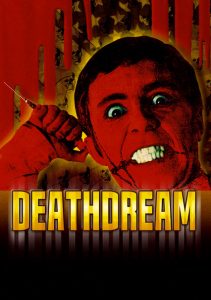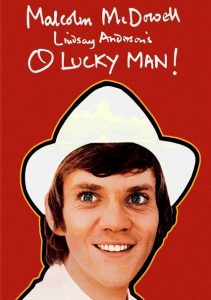I Know What You Did Last Summer 1997
Director Jim Gillespie
Starring Jennifer Love Hewitt, Ryan Phillippe, Sarah Michelle Gellar
Scott’s Review #1,182
Reviewed September 29, 2021
Grade: B+
Capitalizing on the wild success of the mid-1990s horror resurgence led by Wes Craven’s Scream (1996), I Know What You Did Last Summer (1997) was a popular low-budget popcorn hit.
The year 1997 was like 1979 or 1980 when the slasher craze (part Deux) was still fresh and intriguing.
The film is fun with superior direction and a dark ambiance that works quite well for the genre.
A slew of other imitators would follow this release including the tepid I Still Know What You Did Last Summer in 1998 but the first one is formulaic entertainment done well.
It wisely cast youthful stars of the day chomping to be the killer’s next victim.
One hot July 4th night in the small coastal town of Southport, North Carolina, a group of four teenagers run over a fisherman and dump his body in the water, vowing never to speak of the incident again.
Some members of the group feel little remorse while others are racked with guilt.
The four principals are Julie (Jennifer Love Hewitt), Barry (Ryan Phillippe), Helen (Sarah Michelle Gellar), and Ray (Freddie Prinze Jr.).
Predictably, one year later Julie receives a frightening letter and the group reconvenes. They fret and worry that they have been seen or, worse, that they will be exposed. The letter states ‘I Know What You Did Last Summer’.
Someone begins to follow them, especially Julie, clad in fisherman’s gear and wielding a meat hook.
In a way, he is a combination of other horror villains like Jason, Freddy, and Michael Meyers, but we know neither his identity nor his motivation.
Does he want money or blood?
One of the groups incorrectly pursues who he thinks is the killer and is unceremoniously run down and terrorized. The bloodletting only continues as other townspeople become involved in the events some amid a local Independence Day parade.
There are some obvious inclusions to the story to make sure audiences are aware they are watching a slasher flick and a teen-targeted genre flick. This is no wonder since the screenwriter, Kevin Williamson, was best known for teenaged-themed writing for television’s Dawson’s Creek.
I Know What You Did Last Summer borrows from so many 1980’s slasher-flicks like Terror Train (1980), Prom Night (1980), and My Bloody Valentine (1981) that it’s a given that Williamson and director Jim Gillespie spent weekends shacked up with popcorn and sodas while watching these films for reference material.
The killer is masked. This is to make damned sure we know that we are watching a whodunit and that at the finale the killer will be exposed- think the big reveal in every Scooby-Doo episode.
Could the killer be one of the teens themselves?
Julie is immediately the ‘final girl’ simply because she feels the most guilt and is the most pursued perhaps for that very reason. Other necessities like the asshole jock (Phillippe), the mean girl (Bridgette Wilson), and the red herring are added on like clockwork.
We know that Julie will be the one to survive.
Still, the premise is quite compelling and immediately had me hooked. I also knew that I was being manipulated but I did not care. I couldn’t wait to find out who the killer was.
The final sequence that ensures a sequel is delicious and an obvious ode to Brian De Palma films. A year later in 1998, Julie is in college in Boston. As she enters the shower, she notices the words “I still know” written in the steam on the shower door.
Moments later, a dark figure crashes through it as Julie screams!
I Know What You Did Last Summer (1997) is straight-up, by-the-numbers mainstream horror but the familiarity doesn’t detract from the enjoyment of the experience. You know what is right around the bend and you can’t wait to get there.
